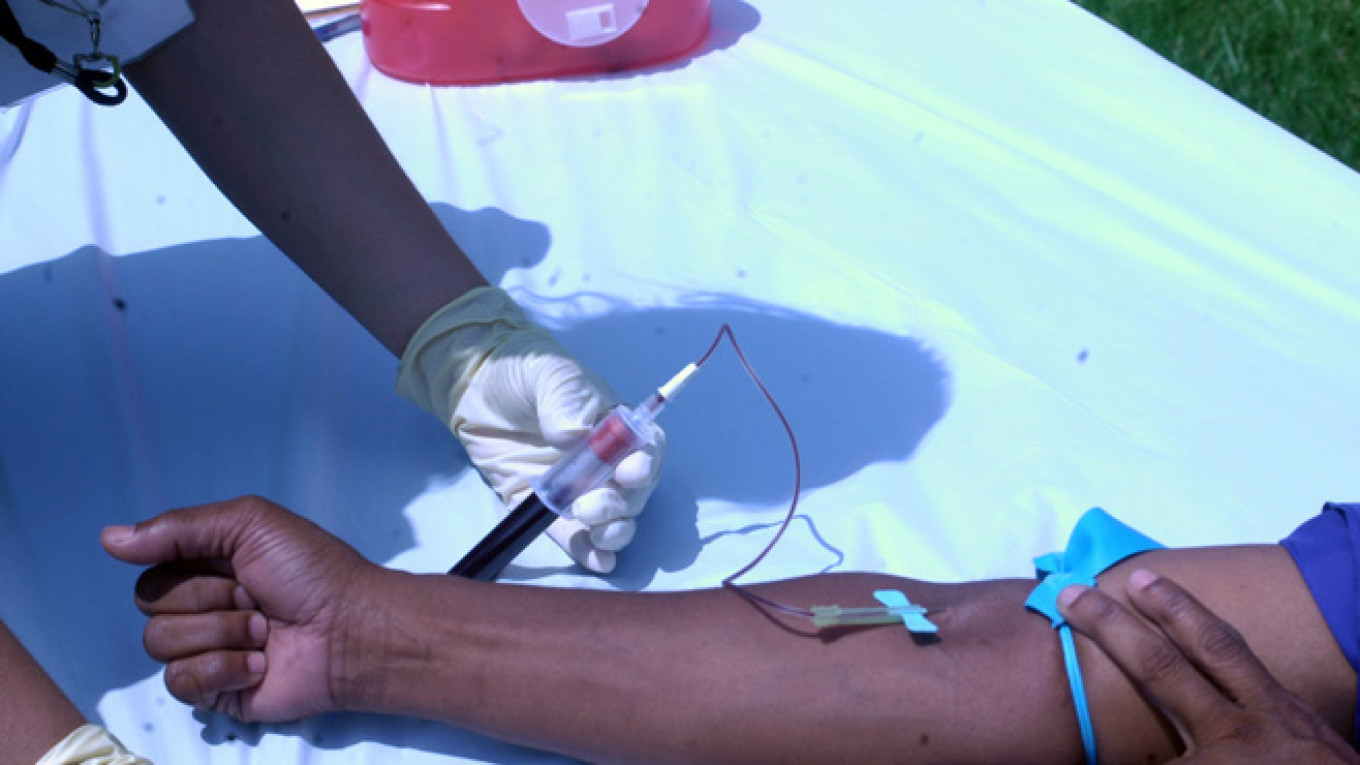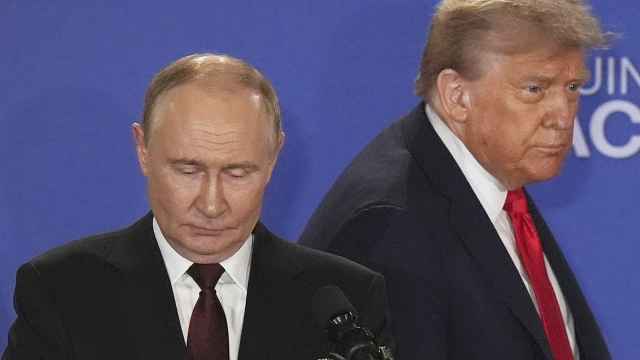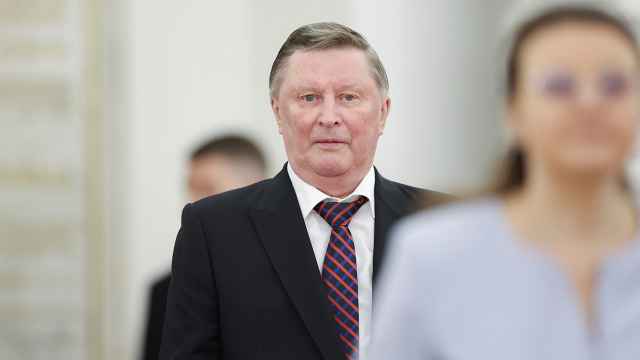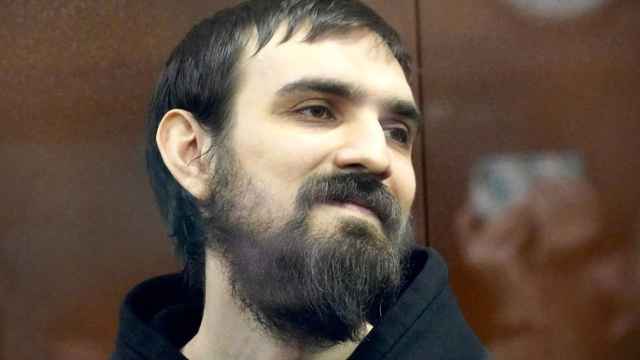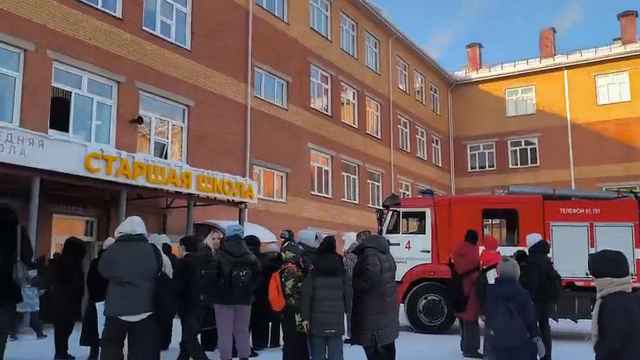As Health Minister Veronika Skvortsova trumpeted Russia's progress in the fight against HIV/AIDS, critics insist that the government policy prohibiting methadone substitution continues to hamper efforts to slow the spread of the disease.
"In Russia today, 463 out of every 100,000 people are infected with HIV. In other countries that boast of their preventative efforts, the prevalence is higher. In the U.S., 600 out of 100,000 people are infected. In Brazil, the infection rate is about 500," Skortsova said in a speech Monday during a conference on HIV/AIDS in Eastern Europe and Central Asia. The Moscow Times could not independently verify these statistics. Neither the World Health Organization nor UNAID included Russian data in their most recent comparative reports on the global HIV/AIDS epidemic.
As Skvortsova lauded Russia's relative infection rate, Deputy Prime Minister Igor Shuvalov praised the allocation of "all necessary [state] funds" to the fight against HIV/AIDS.
Meanwhile, international officials and activists were less enthusiastic about Russia's approach to combatting the disease.
UNAID executive director Michel Sidibe asked during the conference, "Why is the Russian Federation the only country in the Group of 20 and the BRICs where the HIV epidemic is still growing?" He then called on governments across the globe to "ensure that people who inject drugs are not treated like criminals. They should be treated as people with an illness that needs prevention, treatment, care and support."
Whereas sexual contact is the primary means of transmission in many regions with high infection rates worldwide, shared needles are the major cause in Russia.
Methadone substitution has proved successful in many countries around the globe as a method of weaning drug abusers from their addictions. However, Russian authorities have resisted the implementation of such programs, claiming that they encourage drug use.
Former head of the Federal Consumer Protection Agency Gennady Onishchenko said at the conference that Russia had allocated more than 112 billion rubles ($3.21 billion) between 2006 and 2013 to programs aimed at detecting and treating HIV/AIDS. Some critics have argued that funds should also have been spent on preventative measures geared toward minimizing the risk of HIV exposure and infection.
"If you focus only treatment and do not work on prophylactic methods for groups such as drug users, for whom no funding has been allocated, more and more people will get HIV, turn up for treatment, and the budget will increase," Ivan Varentsov, information coordinator for anti-HIV advocacy group the Andrei Rylkov Foundation, told The Moscow Times by telephone.
The Rylkov Foundation, which strongly advocates for the use of methadone treatment, boycotted this week's conference in Moscow because of its disagreement with Russia's "inefficient" HIV/AIDS policies.
Following a zero-tolerance period, China has seen success in stabilizing its domestic HIV/AIDS epidemics following the implementation of methadone treatment programs. However, Russia appears to have remained unswayed.
"The problem is that evidence-based dialogue with the government in Russia is unfortunately, at this stage, not happening," Nicolas Cantau, regional manager for Eastern Europe at anti-AIDS financing institution The Global Fund, told The Moscow Times by telephone Tuesday.
"Yesterday we could not see any kind of willingness from the authorities to open such dialogue," Cantau said, adding "It has to happen if we do not want this region to be the only region where the epidemic is growing."
Contact the author at [email protected] . Follow him on Twitter @CKozalBrennan
A Message from The Moscow Times:
Dear readers,
We are facing unprecedented challenges. Russia's Prosecutor General's Office has designated The Moscow Times as an "undesirable" organization, criminalizing our work and putting our staff at risk of prosecution. This follows our earlier unjust labeling as a "foreign agent."
These actions are direct attempts to silence independent journalism in Russia. The authorities claim our work "discredits the decisions of the Russian leadership." We see things differently: we strive to provide accurate, unbiased reporting on Russia.
We, the journalists of The Moscow Times, refuse to be silenced. But to continue our work, we need your help.
Your support, no matter how small, makes a world of difference. If you can, please support us monthly starting from just $2. It's quick to set up, and every contribution makes a significant impact.
By supporting The Moscow Times, you're defending open, independent journalism in the face of repression. Thank you for standing with us.
Remind me later.


